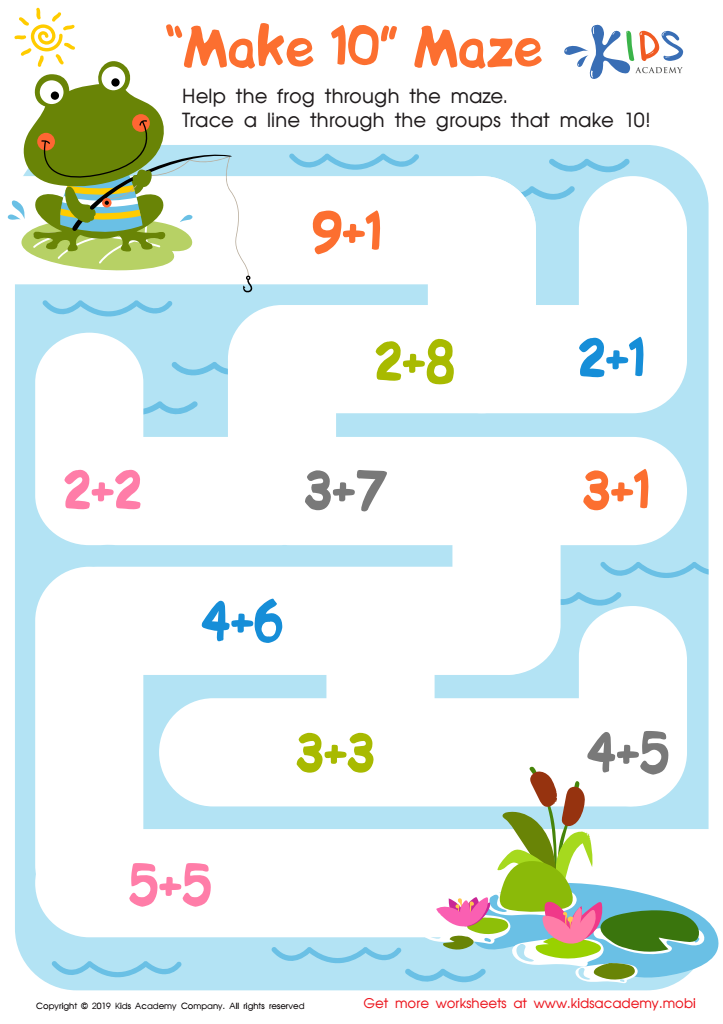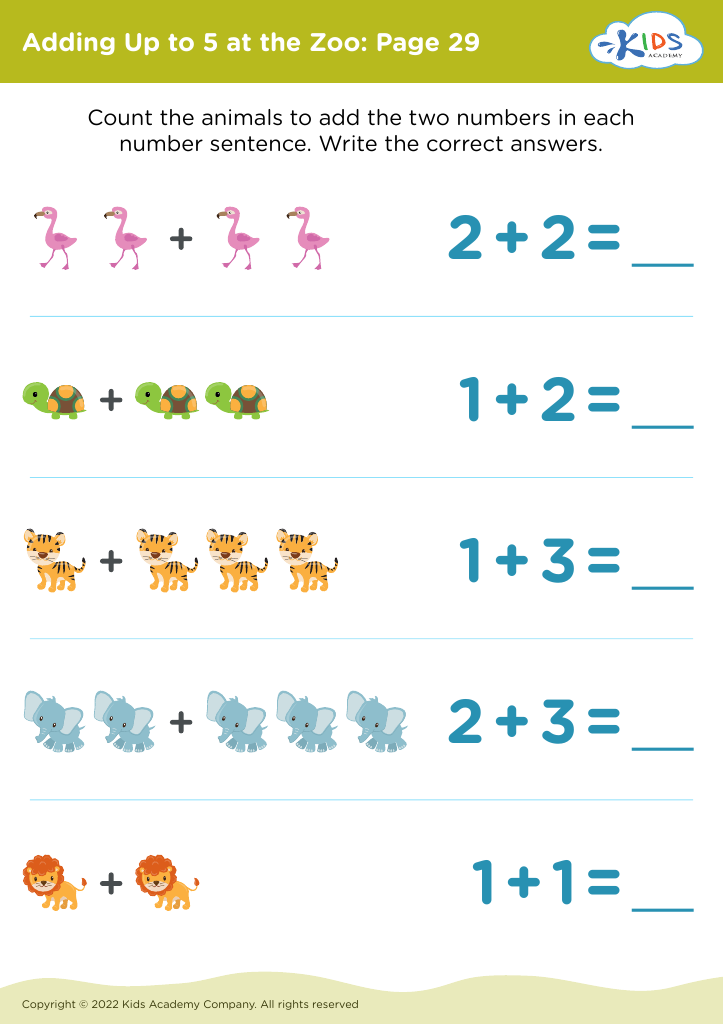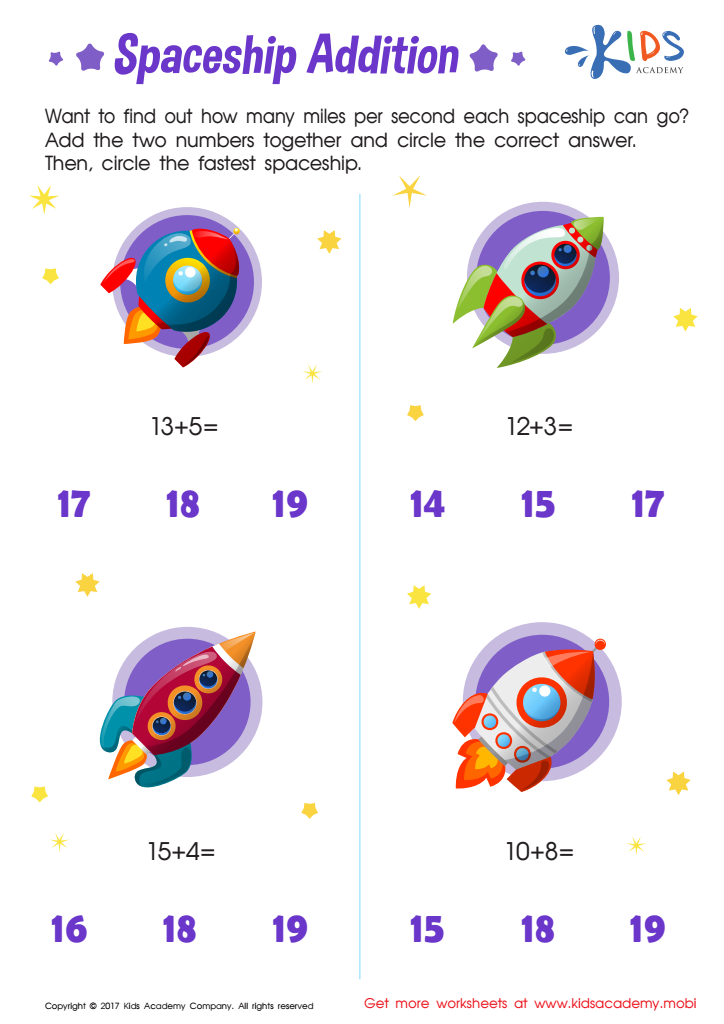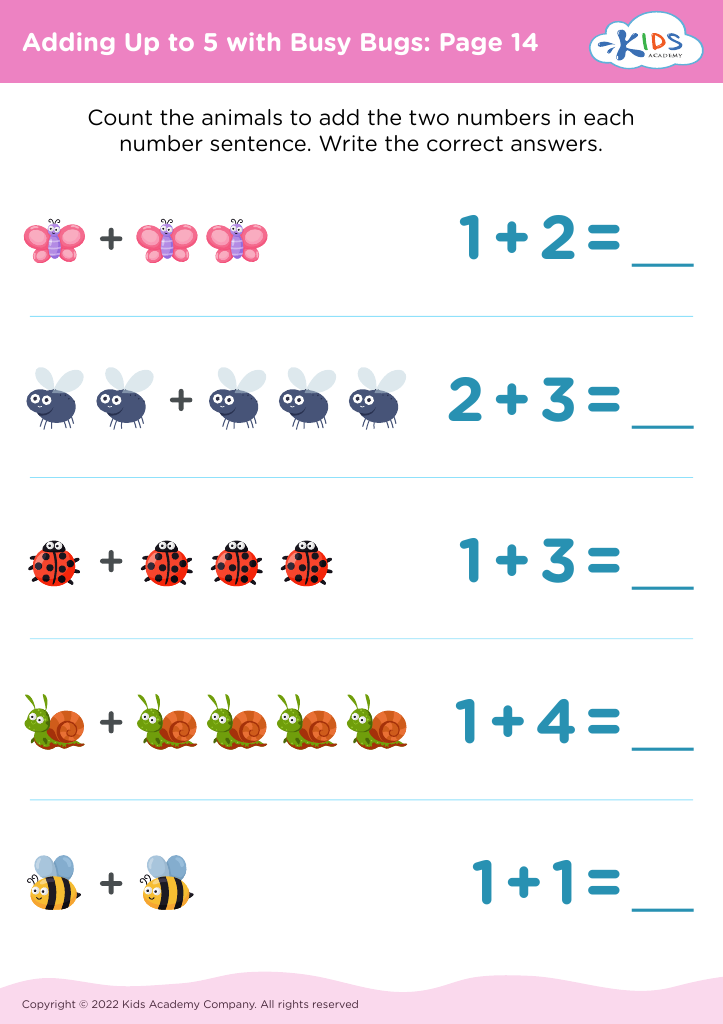Basic arithmetic understanding Addition & Subtraction Worksheets for Ages 4-5
4 filtered results
-
From - To
Explore our engaging Basic Arithmetic Understanding Addition & Subtraction Worksheets designed specifically for children aged 4-5! These worksheets provide young learners with a fun and interactive way to develop essential early math skills. With a variety of exercises that introduce addition and subtraction concepts using visual aids and playful exercises, children will build their confidence while mastering these foundational skills. Our carefully crafted worksheets help reinforce number recognition, counting, and basic problem-solving abilities, making learning enjoyable and effective. Spark your child’s curiosity and set them on the path to math success with our colorful and accessible worksheets!


Make 10 Maze Worksheet
Basic arithmetic understanding, particularly addition and subtraction, is foundational for young children aged 4-5. At this developmental stage, children are naturally curious and eager to learn, making it an ideal time to introduce these concepts. Mastery of these skills lays the groundwork for future mathematical understanding and problem-solving abilities.
Additionally, understanding addition and subtraction helps nurture critical thinking and cognitive skills. When children engage in these operations, they start recognizing patterns, developing logical reasoning, and enhancing their memory. This cognitive development translates into greater confidence when tackling more complex mathematical concepts later in their education.
Moreover, strong arithmetic skills boost children's everyday problem-solving abilities. For example, they learn to manage simple chores, share toys fairly, or count items during play. This fosters independence and social skills as they articulate their understanding and negotiate with peers.
Parental and teacher involvement in this early stage is crucial. By providing encouragement, engaging in playful learning activities, and modeling arithmetic in everyday situations, adults can help instill a positive attitude towards math. Ultimately, nurturing these basic skills equips children with the tools they need for academic success and everyday life, making it imperative for parents and teachers to prioritize this foundational learning.



 Assign to My Students
Assign to My Students




















